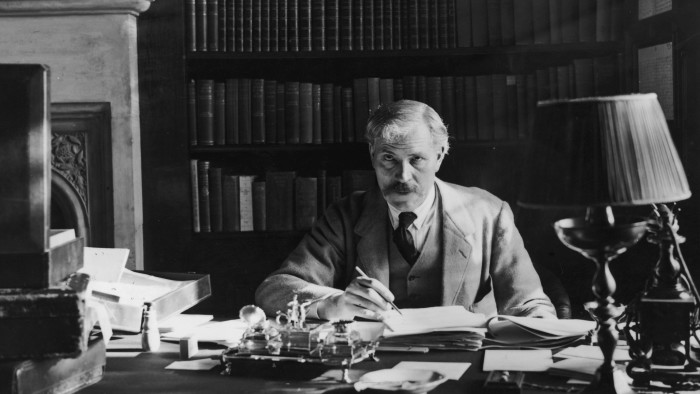Unlock the Editor’s Digest for free
Roula Khalaf, Editor of the FT, selects her favourite stories in this weekly newsletter.
The writer is professor of politics at Queen Mary University of London
Since Labour first entered government in 1924, a total of 13 of the party’s MPs have served as government chief whip. Few had an easy time of it. The relationship between Labour’s front and backbench has been a perpetual problem for the party — with welfare reform a regular bone of contention, then as now. This week’s government climbdown over cuts to disability benefits is yet more evidence that parliament is becoming increasingly difficult for prime ministers to handle.
Welfare caused both the first major rebellion of the Blair era, over lone parents, and the largest revolt in the 1997 parliament, when 67 MPs defied the whips over incapacity benefit. There were also significant rebellions over benefit reforms against James Callaghan, Harold Wilson, Clement Attlee and Ramsay MacDonald.
On one single day in 1931 during MacDonald’s second government, Labour backbenchers voted against government unemployment measures in 32 straight divisions — the highest number of consecutive rebellions to take place in one day in any Labour government before or since.
In 1924, the first Labour government saw almost four out of every 10 members of the parliamentary party rebel over unemployment benefit; as a proportion, this remains the largest ever rebellion by Labour backbenchers, larger (in percentage terms) even than the 2003 revolt over Iraq — when a third rebelled.
So former Labour chief whips would understand Sir Alan Campbell’s difficulties in handling the threatened rebellion of the last few days — although they might still be surprised by some of the details.
It is not especially the scale that is unusual here — over 120 Labour MPs. Such large rebellions have increasingly become a fact of life. Blair Iraq rebels numbered 139, Theresa May was defied by 118 Conservatives over Brexit (again, as a percentage of the parliamentary party, this was even larger than the Iraq rebellion). John Major, David Cameron and Boris Johnson all suffered revolts of over 90.
Yet such defiance this early in a premiership is extremely unusual. The largest postwar rebellion in the first year of a government came in 1975 when 91 Labour MPs voted against an increase in funds for the royal household. But it is very much the outlier.
Keir Starmer’s current difficulties are in part the result of the maladroit way the issue has been handled, but they also reveal a shift in the psychology of MPs, who are, in general, becoming more independent and willing to kick against the pricks.
We might have expected this to be a relatively cohesive and acquiescent Labour intake (lots of new MPs, elected last year after an extended period in opposition). But many are also well aware of the uncertain political ground beneath their feet; plenty fear they may only be there for one term and are not all convinced they are being led by political geniuses. Many want to draw a line in the sand, after a year of repeatedly biting their tongues.
Also unusual is the method the rebels, some of them experienced, senior committee chairs, chose — a reasoned amendment at second reading was a tactic that threatened to kill the entire bill — a truly big deal. It took until Blair’s second term before there were any significant second reading revolts. The largest Labour rebellions at this stage have consisted of 72 MPs, a record held jointly by the Higher Education Bill (2004), which significantly raised the level of tuition fees, and the National Service Bill (1947) introducing peacetime conscription.
To understand how unusual it is to have been discussing the potential loss of a government bill this week, you need only consider that since 1900, there has been just one occasion when a government with a secure majority in the Commons has lost a bill in its entirety at its second reading.
In 1986, Margaret Thatcher’s Conservative government went down to defeat over a doomed attempt to liberalise Sunday trading hours. In the largest rebellion of her era, some 72 Tory MPs defied their whips, with others abstaining.
That debacle came deep into Thatcher’s second term — by which point backbench discontent had been building for a while — and on an issue that was not central to the government’s programme. In response to the defeat, the government shrugged its shoulders and moved on; Thatcher made no further attempt to deal with the issue. Starmer’s difficulties come less than a year in — and on a much more significant policy.
The government’s retreat makes next week’s vote less exciting. But it will also have demonstrated to Labour MPs that they do not have to be bystanders in the policy process. Like Arnold Schwarzenegger, they will be back.






